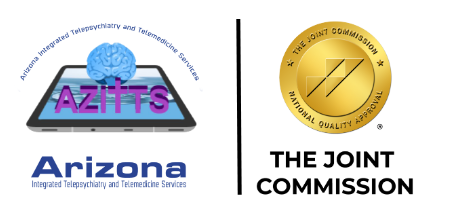Telepsychiatry is an emerging subfield of telemedicine that uses technology to diagnose and treat those living with mental illnesses like schizophrenia remotely via technology. Since COVID-19's implementation, this field has experienced explosive growth within mental healthcare services, offering both opportunities to enhance care as well as challenges. Utilization of these assessments presents both benefits and difficulties;
Greater Access
Telepsychiatry Offers Rural Residents Greater Access to Mental Healthcare. Telepsychiatry gives rural residents greater access to mental healthcare, particularly those without transportation or financial constraints. Patients previously unable to reach treatment due to geographic, financial, or transportation barriers now can receive care right from home without incurring extra expenses for healthcare visits
Convenience and Flexibility
By forgoing travel costs to clinics altogether, patients can save both time and money; also enjoying greater appointment adherence while maintaining continuity of treatment.
Minimized Stigma
Telepsychiatry offers an effective solution to stigma associated with seeking help for mental illness, by enabling remote consultations to remain anonymous during therapy sessions without fear of being seen in a mental clinic. This provides greater comfort to those seeking assistance.
Continuous Care
Telepsychiatry can provide stability and support when treating mental illnesses.
Integrating Technology & Integration
Telepsychiatry can easily integrate with digital tools like mobile health apps and wearable devices for tailored treatment plans that offer a comprehensive view of a patient's mental well-being.
Read This: Telepsychiatry services vs Traditional Psychiatry
Telepsychiatry evaluations: challenges
Technological Barriers
Telepsychiatry is facing major challenges due to its digital divide. Patients with low incomes and the elderly are less likely to have access to the technology and the internet needed for telepsychiatry.
Privacy and Security Issues
Video conferencing must comply with privacy laws, such as HIPAA (in the US). The confidentiality of its users is vital. Cyberattacks compromise the trust of telepsychiatry and pose a threat to patient privacy.
Nonverbal cues: limitations
Non-verbal signals like body language and facial expressions are often used in psycho-psychiatric assessment to help assess patients. These cues can be difficult to detect on video, which may negatively impact the therapeutic process.
Training and Adaptation
Telepsychiatry models need to be tailored for clinicians and patients to be more effective. Clinicians must be trained on the technical aspects of telepsychiatry andremote assessments to ensure successful functioning. Low-tech savvy clients may need assistance in navigating the telepsychiatry system.
Regulation and Licensing
The regulatory environment for telepsychiatry can be complex due to its ability to span state lines and even countries. This means that licensed clinicians are required in every location where patients live to ensure successful operation. This limits practice, while increasing administrative work. Telepsychiatry policies and reimbursements vary by region and insurer, further complicating the situation.
Emergencies
In telepsychiatry, it can be difficult to deal with mental health emergencies like acute schizophrenia or feelings of suicidal thoughts. To ensure the safety of patients during crises, clinicians need to have protocols in place to respond to remote emergencies. They may also need to coordinate with emergency services or family members. Use resources wisely.
How to Address Barriers
Reduced Digital Divide
The digital divide can be closed by providing low-cost internet and devices to underserved areas. Public-private partnerships are another way to improve technology infrastructure for rural and low-income regions. Telepsychiatry makes therapy more accessible.
Privacy and Security
Privacy concerns can be alleviated using video conferencing platforms specifically designed for healthcare. Telepsychiatry is confidential and secure because it performs regular cybersecurity assessments and trains staff on how to protect patient data.
Enhancing Clinical Skills
Telepsychiatry can help clinicians improve their understanding of nonverbal cues through improved video and audio quality. Programs of continuing education keep practitioners abreast of new technologies and best practices.
Supporting and educating patients
Educational resources, hotlines, and technical support are all great ways to make remote health care more comfortable and accessible for patients.
Harmonizing Regulatory Frameworks
Interstate licensing compacts can help clinicians work easily across state boundaries. Harmonized telemedicine rules make it easier for clinicians to get reimbursed and licensed. Telepsychiatry expands its reach while improving access to treatment.
Emergency Protocols
Safety in telepsychiatry can be enhanced by developing specific emergency response protocols. Patients must know who to contact in an emergency and have a list of local crisis intervenors. Patients receive prompt and adequate care when they are in distress with such protocols.
Future Directions
Telepsychiatry is set to experience rapid advancements, especially with the integration and use of AI. These technologies can be used to diagnose and predict mental disorders by analyzing patterns of patient data. AI-powered tools give clinicians insight into diagnosis and treatment efficiency.
Telepsychiatry could become a vital component of mental healthcare, complementing traditional in-person treatments. Its growth is dependent on innovation, strong regulatory structures, and a willingness to face any challenges. Telepsychiatry can play an essential role in creating an accessible and effective mental healthcare system by capitalizing on opportunities and eliminating hurdles.
Telepsychiatry can provide both opportunities and challenges. Telepsychiatry can transform mental health care by increasing accessibility, convenience, and consistency of service delivery.
If you need Telepsychiatry Services in Mesa, Arizona experienced therapists offer personalised care of anxiety, despair, trauma, . With a compassionate technique, they offer support and steerage that will help you navigate existence's challenges and improve intellectual well-being. Reach out these days for a course to restoration and growth.
Telepsychiatry will require effort to overcome technical, regulatory, and clinical obstacles. However, it could be a part of mental healthcare services for a sustained period by adopting comprehensive approaches that allow people to receive care regardless of their location or circumstances.
